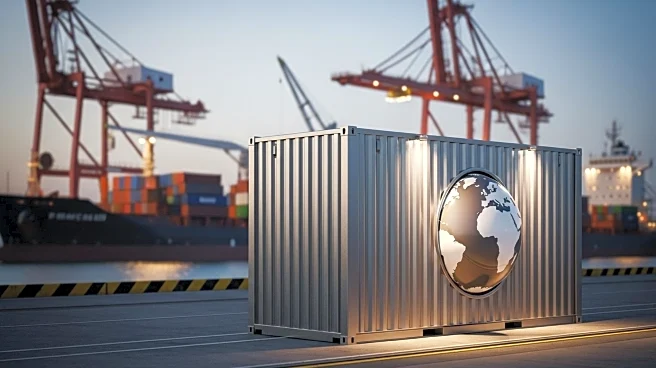What's Happening?
The US has ended duty-free shipments for low-value packages, a move that will slow down and increase the cost of fast fashion imports. This change is part of President Trump's trade policies, which aim to curb the influx of cheap foreign goods into the US market. The new customs regime affects international discount sellers and online marketplaces, leading to potential price increases for consumers. Additionally, India faces new tariffs, with import duties on its goods reaching 50%, impacting its fashion and textile sectors.
Why It's Important?
The end of duty-free shipments marks a significant shift in US trade policy, affecting the fast fashion industry and international commerce. Companies that rely on low-cost imports may face increased operational costs, potentially leading to higher prices for consumers. The tariffs on Indian goods could disrupt the country's textile industry, affecting jobs and economic stability. These changes reflect broader geopolitical tensions and the US's strategic use of trade policies to influence global markets.
What's Next?
As tariffs begin to impact businesses, companies may need to adjust their pricing strategies and supply chain operations. The fast fashion industry, in particular, may face challenges in maintaining its current business model. International carriers and marketplaces are likely to seek clarity on the new customs regime, potentially leading to service suspensions or adjustments. The situation may also prompt other countries to reevaluate their trade policies in response to US actions.
Beyond the Headlines
The tariff changes highlight the complexities of global trade and the interconnectedness of economies. The impact on fast fashion and international commerce underscores the need for adaptive strategies in a rapidly changing trade environment. The situation also raises questions about the ethical implications of trade policies and their effects on developing economies and low-paid workers.










